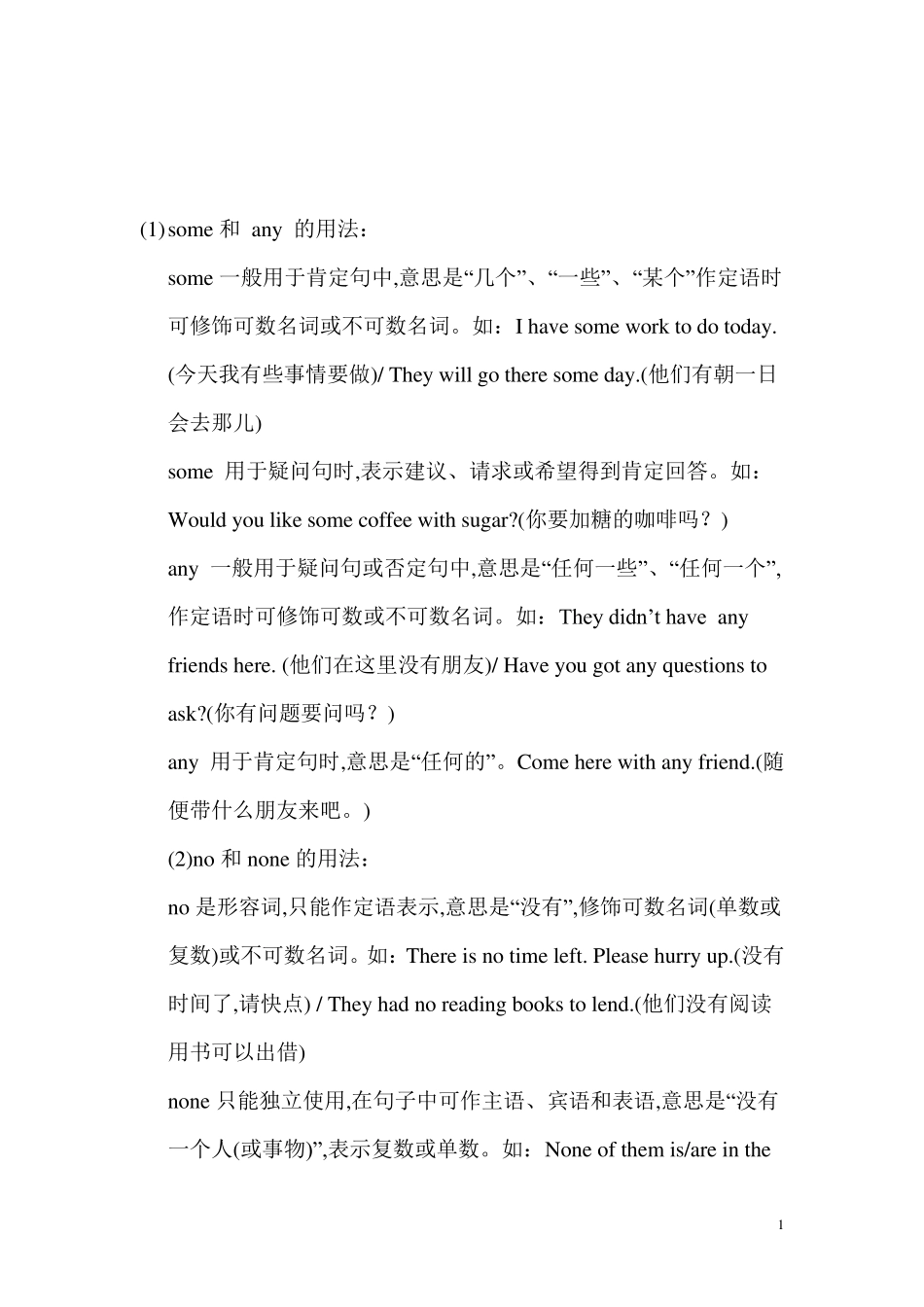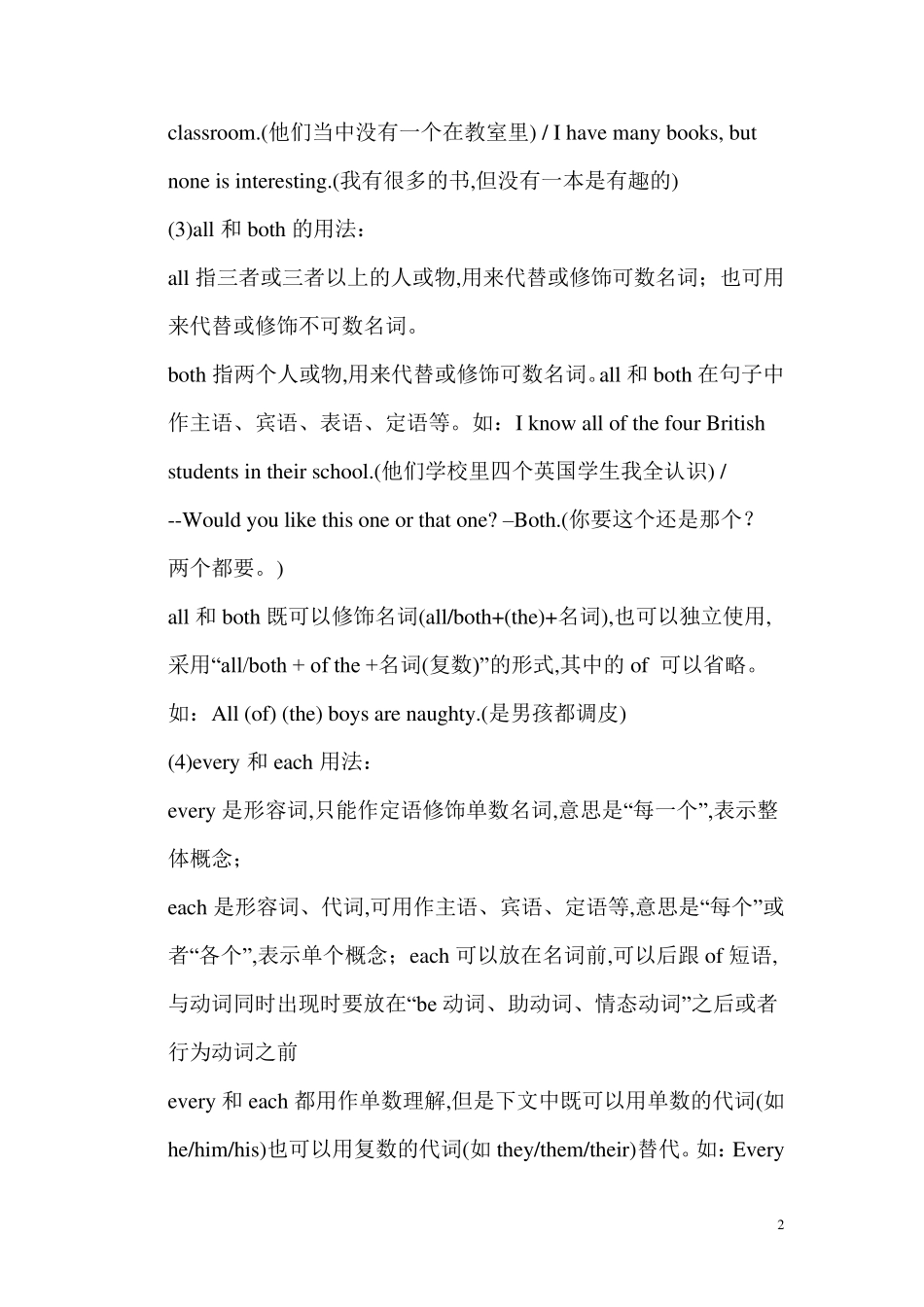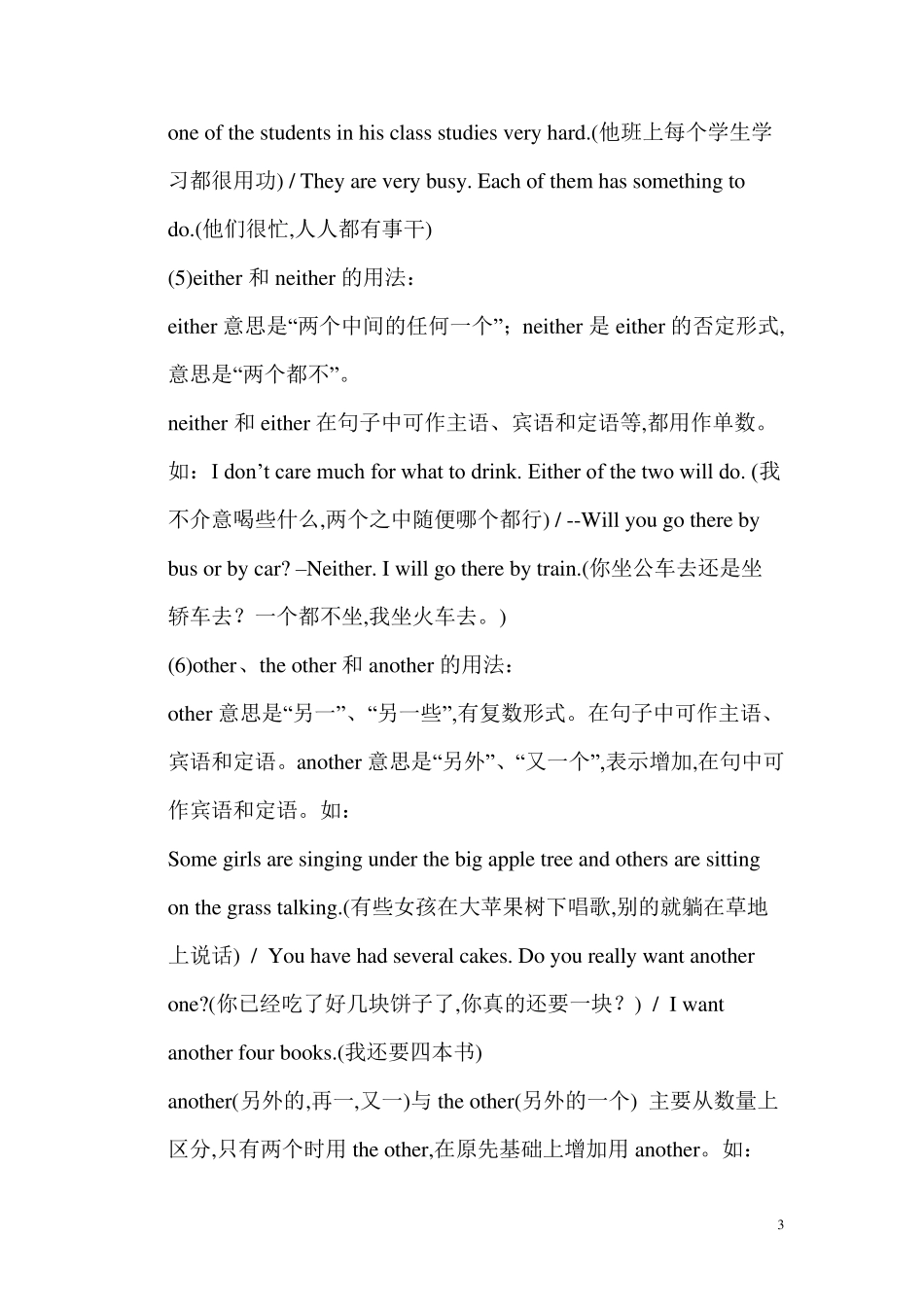1 (1) some 和 any 的用法: some 一般用于肯定句中,意思是“几个” 、“一些” 、“某个” 作定语时可修饰可数名词或不可数名词。如:I have some work to do today. (今天我有些事情要做)/ They will go there some day.(他们有朝一日会去那儿) some 用于疑问句时,表示建议、请求或希望得到肯定回答。如:Would you like some coffee with sugar?(你要加糖的咖啡吗?) any 一般用于疑问句或否定句中,意思是“任何一些” 、“任何一个” ,作定语时可修饰可数或不可数名词。如:They didn’t have any friends here. (他们在这里没有朋友)/ Have you got any questions to ask?(你有问题要问吗?) any 用于肯定句时,意思是“任何的” 。Come here with any friend.(随便带什么朋友来吧。) (2)no 和none 的用法: no 是形容词,只能作定语表示,意思是“没有” ,修饰可数名词(单数或复数)或不可数名词。如:There is no time left. Please hurry up.(没有时间了,请快点) / They had no reading books to lend.(他们没有阅读用书可以出借) none 只能独立使用,在句子中可作主语、宾语和表语,意思是“没有一个人(或事物)” ,表示复数或单数。如:None of them is/are in the 2 classroom.(他们当中没有一个在教室里) / I have many books, but none is interesting.(我有很多的书,但没有一本是有趣的) (3)all 和both 的用法: all 指三者或三者以上的人或物,用来代替或修饰可数名词;也可用来代替或修饰不可数名词。 both 指两个人或物,用来代替或修饰可数名词。all 和both 在句子中作主语、宾语、表语、定语等。如:I know all of the four British students in their school.(他们学校里四个英国学生我全认识) / --Would you like this one or that one? –Both.(你要这个还是那个?两个都要。) all 和both 既可以修饰名词(all/both+(the)+名词),也可以独立使用,采用“all/both + of the +名词(复数)”的形式,其中的of 可以省略。如:All (of) (the) boys are naughty.(是男孩都调皮) (4)every和each 用法: every是形容词,只能作定语修饰单数名词,意思是“每一个”,表示整体概念; each 是形容词、代词,可用作主语、宾语、定语等,意思是“每个”或者“各个”,表示单个概念;each 可以放在名词前,可...


